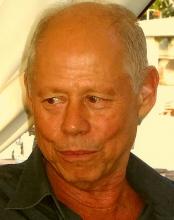Professor, Department of Physics
Speech Title:
Chamber of Hope: Hyperbaric Oxygen for Brain Repair
Abstract:
Every year, nearly two million people in the US suffer TBI, which is the leading cause of disability in the general population. Yet, there is no agreed upon effective treatment/ metabolic intervention in the daily clinical practice for post TBI patients with chronic neurological dysfunction. Intensive therapy and rehabilitation programs are valuable for improving quality of life right after brain injury. We will present sound and persuasive evidences that hyperbaric oxygen therapy (HBOT) can repair chronically impaired brain functions and significantly improved the quality of life of mild TBI patients at late chronic stage and with prolonged post-concussion syndrome (PCS). The trial included 56 mTBI patients 1-5 years after injury whose condition was no longer improving prior to the treatment. The participants were randomly divided into two groups. The first treatment group received two month of HBOT treatment from the beginning of the study, and the second received no treatment for two months, and then received a two-month period of HBOT treatment. Treatment consisted of 40 one-hour sessions five times weekly in high pressure chambers while birthing 100% and experiencing a pressure of 1.5Atm. The patients’ cognitive functions were quantitavly assessed in terms of information processing speed index, attention-related index, memory-related index and executive function index.. Single photon emission computed tomography (SPECT) scans were performed, for all patients, to assess changes in brain activity prior and after treatments and the control period. We revealed significant improvements in the patients’ cognitive functions following the hyperbaric oxygen treatments. Analysis of brain imaging showed significantly increased neuronal activity after a two-month period of HBOT treatment compared to control periods of non-treatment with remarkable agreement between the cognitive function restoration and the changes in the brain functionality as detected by the SPECT scans. Hopefully, the convincing evidence presented in the current study will lead millions of TBI victims to benefit from the curative power of HBOT. Being able to activate neuroplasticity, one can deduce that HBOT might also be used to reverse early stage of dementia and radically slow down the progress of Alzheimer. More daring is the idea to go a step further and envision the use of HBOT as “anti brain-aging” - brain maintenance and improvement at advanced age. ” explains Prof. Ben-Jacob. “But most important, patients experienced improvements such as memory restoration and renewed use of language” says Dr. Efrati. “These changes can make a world of difference to the TBI victims, helping patients recover their independence, go back to work and restore their normal life”, he adds.
Challenging the paradigm.
During most of the 20th century, the dominate paradigm has been that neuroplasticity can only be activated during childhood and during a limited time window following brain damage. "Our findings challenge this paradigm” says Prof. Ben-Jacob. The results demonstrate that neuroplasticity can be activated for months and years after acute brain injury, thus implying that many aspects of the brain remain plastic into adulthood. “The brain consumes 20 percent of the body's oxygen, but that is only enough oxygen to operate five to ten percent of neurons at any one time” explain Dr Efrati. The regeneration process following brain injury, which involves complex tasks such as building new blood vessels and rebuilding connections between neurons, requires much energy. This is where HBOT treatment can help. The high increase in oxygen levels during treatment supplies the needed energy for building new blood vessels, new connections between neurons and stimulation of inactive neurons for facilitating the healing process.
Looking ahead.
The research is supported by the Sagol School of Neuroscience, the Maguy-Glass Chiar in Physics of Complex Systems and the Tauber Family Funds at Tel Aviv University. Dr. Shai Efrati is Head of the Hyperbaric Medicine Unit at Asaf Harofeh Medical Center, member of Tel Aviv University's Sagol School of Neuroscience and Sackler Faculty of Medicine. Prof. Ben-Jacob Prof of Physics at Tel Aviv University School of Physics and Astronomy, member of Tel Aviv University's Sagol School of Neuroscience, Adjunct Professor of Biochemistry and Cell Biology at Rice University and Senior Investigator at the NSF Center for Theoretical Biological Physics at Rice University.






